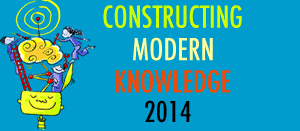A lot of people know that in a previous career I was a video game designer. That means that I get asked all the time about educational games. So here’s a wiki I’ve just created with some of the resources about that topic, including a 20 min presentation. I think that there is a lot of hype about games in education, and it’s important not to just take it so literally.
My hope is that educators take the time to really explore what games can offer in the classroom - not because games are going to “save” or “revolutionize” education, but that they offer a metaphor of what learner-centered education can be.
By learning more about games, educators can decide for themselves if a particular game is something they want to introduce into their classroom because it supports their beliefs about learning, not because it’s all the rage. Or, they can learn how games carefully balance frustration with success to create engaging challenges.
Finally, I always say that the best way to bring games into the classroom is to let students design their own games. It puts the agency even further into the learner camp. Playing games is fun, but you are always playing by someone else’s rules. Making your own game means that you are in charge, and that’s where real learning can happen.
Sylvia

